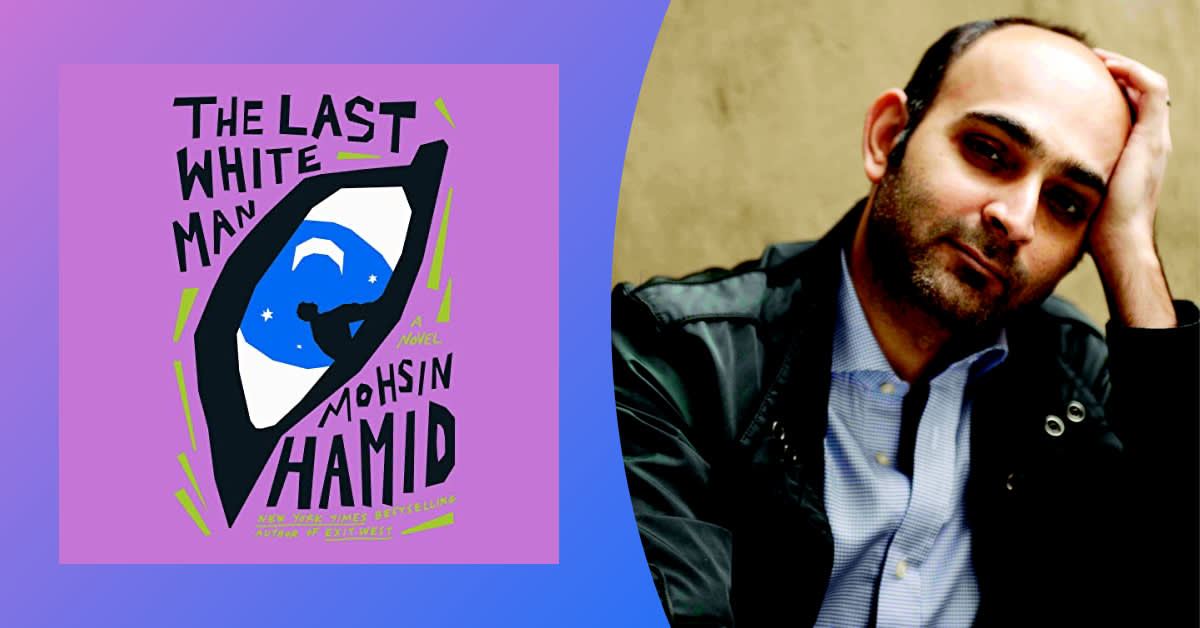With his latest work of fiction, The Last White Man, the author of Exit West and The Reluctant Fundamentalist reimagines a classic Kafka novel to reflect on race, tribalism, and whiteness in a time of growing political and racial division.
Audible: The Last White Man has been described as a reimagining of Kafka’s The Metamorphosis for a racially charged era. What made you want to tell this story now, in 2022?
Mohsin Hamid: It seems to me that we live in a time of growing divisions, of retreating into mutually suspicious tribes. Fiction has always, for me, been a way not just to explore myself but to explore what it might be like to be other selves. Writing is an act of introspection and also an act of transmutation. Race is something pernicious that has been imagined into existence. I think imagination and storytelling might be part of the way we can begin to undermine it. In some ways, the novel represents a 21-year journey that I have been on since 9/11, when I felt I had lost something, and upon reflection I realized that I had lost (and been complicit in) a kind of partial whiteness, the benefits of which I had enjoyed in the United States before that.
Regarding those parallels to The Metamorphosis, were there any other stories that you drew inspiration from while writing?
I have always admired the early- to mid-20th century modernists: not just Kafka but Borges, Calvino, Woolf, and Camus. They wrote after the great globalization that ended in the first World War, and they wrote in times of devastating conflict and renewed tribalism—times not unlike our own. I have long been inspired by books like Ficciones, If on a Winter’s Night a Traveler, Mrs. Dalloway, and The Fall.
“Race is something pernicious that has been imagined into existence. I think imagination and storytelling might be part of the way we can begin to undermine it.”
What were some of the difficulties in writing about race, particularly from the perspective of a privileged white man?
I’m not sure. Writing a character is, for me, about imagining being that character. I wanted to imagine being these people. Whether my imagination is engaging or lacking is for the reader to judge. These days, it feels easier to give oneself permission to write from the point of view of a character who is outwardly similar to oneself. Giving oneself permission to write from the point of view of a character who is not—that is more complicated. So perhaps the main difficulty I had to overcome was giving myself permission to write this at all. I mulled it over for some years, and then decided I could.
What do you want listeners to most take away from this story?
More than having something I want listeners to take away, I hope that listeners find something of their own. They are co-creating the story. They make my words into people, images, feelings in their imaginations. I want readers to co-create their experience of this book and then to consider what that has done to them. The novel is an invitation, not a prescription.





